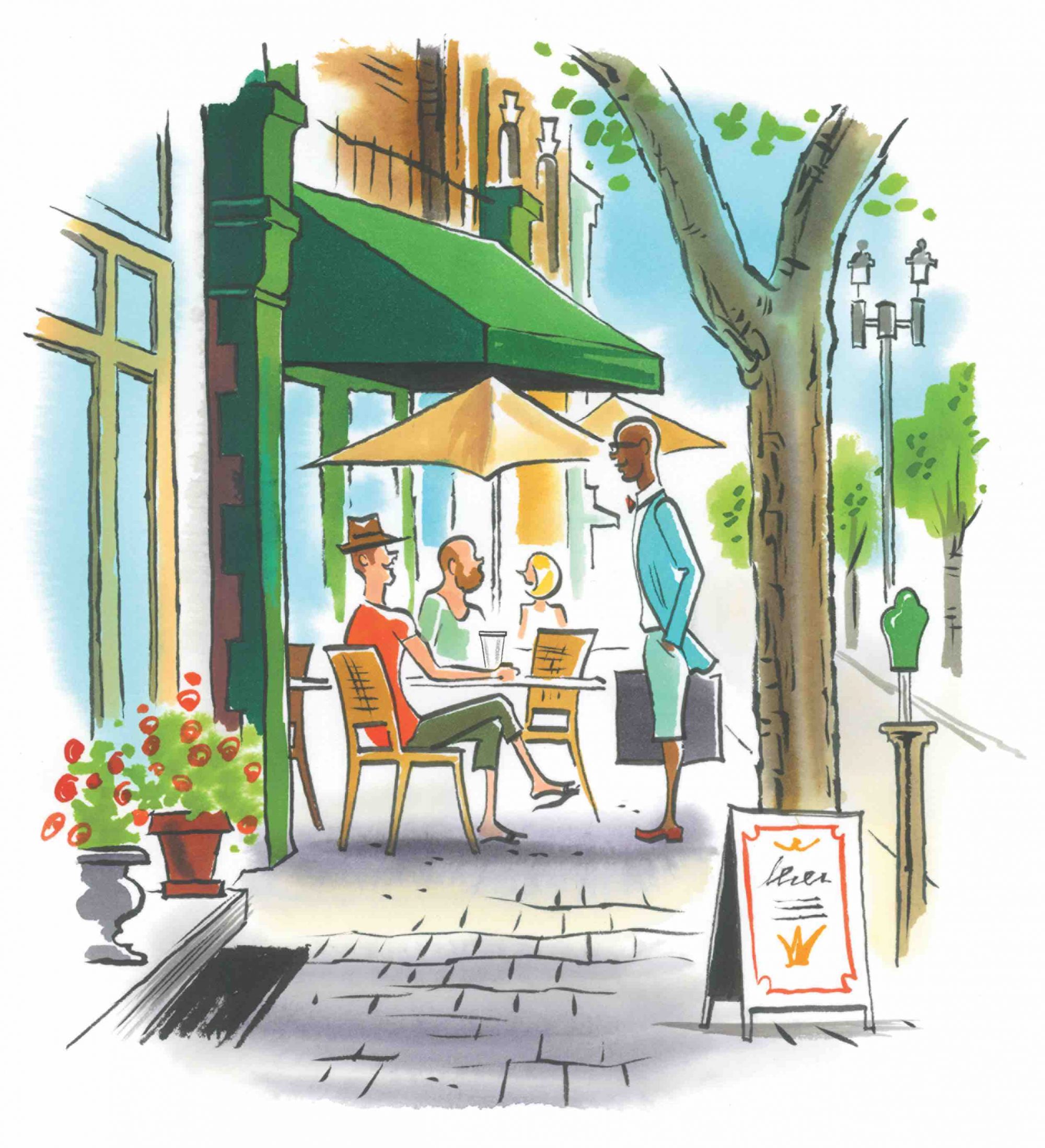Mandolin Books and Coffee Company is no bigger than an average kitchen and living room. Full bookcases line the perimeter of the store, making it tricky to tell if the walls are white or off-white. Behind the glass display of cold lunch items and baskets of pastries, Laura England serves the next customer a latte. But for the cafe owner, “neighbour” is the more appropriate term.
England, a 43-year resident of Highlands, bought the coffeehouse-cum-used bookstore in 2008, right in its fifth year of business. For her, it was like buying a part of the community, something it couldn’t afford to lose. The first thing she did to improve it was extend the hours beyond 5 p.m. to 9 p.m, so that it was more accessible to patrons.
“It’s a third home for the people in our community,” says England,”a place to sit and stay connected and keep this community as tight-knit as it is.”
Sociologist Ray Oldenburg first coined the idea of a “Third Home” in his 1989 book The Great Good Place, where he looked at human interactions in public settings, like pubs and cafes, and showed how these places help human social development. The dependence has only increased as today’s business world becomes more mobile. It is, then, of little surprise that 74 per cent of our readers voted cafes as the utmost important feature for a neighbourhood.
“It’s the central meeting place for people in the community,” says Barb Martowski, communications director of Highlands Community League. In fact, she says, many local businesses and community groups use the cafe as a conference room.
Aside from an inexpensive place for friends to meet, Mandolin is the boardroom of neighbourhood realtors every Tuesday morning, the study place of students after class and the playroom for children during summer vacation. Even provincial NDP leader Brian Mason – whose office is in the neighbourhood – takes his work here sometimes.
